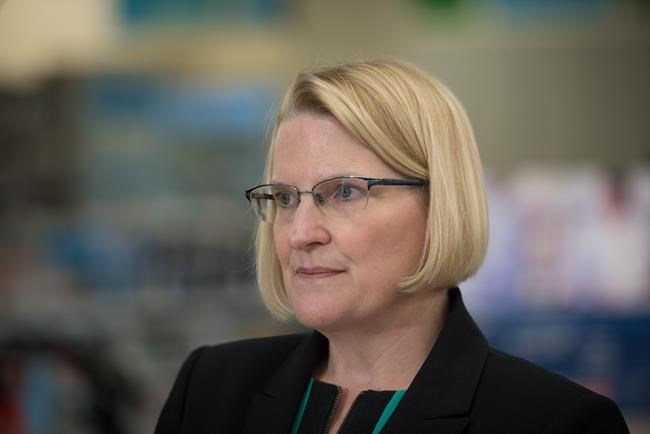TORONTO — Ontario fully supports the federal government's push to make health-care funding contingent on data reporting, the province said Thursday as it announced a plan to boost access to primary care doctors.
Provincial and territorial premiers are set to meet with Prime Minister Justin Trudeau next week to hash out a deal on the Canada Health Transfer.
The premiers want to see Ottawa cover 35 per cent of health-care costs across the country, up from the current 22 per cent. The prime minister has said the deal will come with strings attached, including sharing health data and outcomes for a national database.
"We've always been very open with our federal partners that if they need the data to prove that the $14 billion that we've invested since 2018 is improving our system and making it better, we're all in," said Health Minister Sylvia Jones.
The president of the Ontario Hospital Association said hospitals across the province already track more than 1,000 indicators that measure hospital performance.
"From a hospital point of view, there's no question that whatever the levels of government feel they need to monitor whatever investments are made, the hospital system can deliver," Anthony Dale said.
He called the potential influx of health-care dollars "an absolutely critical investment."
"These investments will help expand capacity in home care and long-term care where it is desperately needed and where we see an increasing number of patients present in hospitals because they can't access services outside of the hospital setting," Dale said.
The province spelled out its commitment to the data reporting in a 52-page document released by Jones that outlines Ontario's next phase in health reform.
"If we don’t measure our performance, we can’t fully see how gaps in service are affecting patient care and come up with solutions to fix them quickly," the document said.
"That’s why Ontario is in full support of the federal government’s call for national health-care data reporting as part of its funding partnership with provinces and territories."
In presenting the plan, Jones pledged shorter wait times for surgeries, emergency care and more support for mental health and addictions.
The province is investing $30 million to create 18 new primary care health teams, which could include doctors, nurses, social workers, pharmacists and others, she said.
Ontario will allow 1,200 physicians to join a family care team over the next two years.
"These family health organizations will be required to provide comprehensive primary care services, extended evening and weekend hours of practice and provide more weekend coverage so you can access a family physician when you need it," the province's plan said.
Jones said the new teams will "help bridge the gap in accessing primary care for the vulnerable, marginalized and unattached patients to ensure they are able to connect to care where and when they need it."
A study in the fall showed there are 1.8 million Ontarians without a family doctor and another 1.2 million Ontarians who have a doctor aged 65 or older.
The province's now-defunct independent science table told the government in the fall that the burden of COVID-19 going forward will sit on the shoulders of primary care doctors.
It found patients who weren't connected with a family doctor or medical team had worse health outcomes during the pandemic. It also found primary care teams better responded to the needs of patients than solo practitioners.
It suggested a team-based approach to primary care would better serve patients and help address the family doctor shortage.
Dr. Mekalai Kumanan, the president of the Ontario College of Family Physicians, welcomed the primary care expansion plans.
"Ontarians who have family doctors working in teams have far greater access to health care because their physicians are supported by nurses, dietitians, social workers and more," she said.
At present, 75 per cent of family doctors and their patients do not have access to that kind of support, Kumanan said.
"We want to expand this kind of model of care so that all Ontarians have this high quality of care allowing Ontarians to have one door to a team of health care providers who know them, their family, and their history to support their everyday health and social needs," she said.
Ontario also announced that this year it will launch a practice-ready assessment program for doctors, which the College of Physicians and Surgeons of Ontario has long urged, in order to more quickly register internationally educated physicians.
The province says the move will see at least 50 new doctors working in Ontario by 2024.
The province also said it will be phasing out fax machines within the next five years at all Ontario health-care providers.
This report by The Canadian Press was first published Feb. 2, 2023.
Liam Casey and Allison Jones, The Canadian Press

